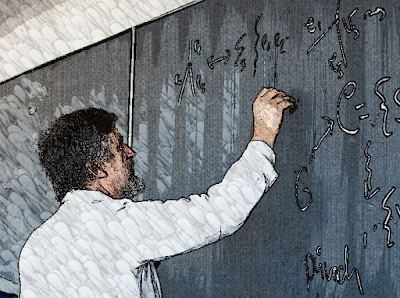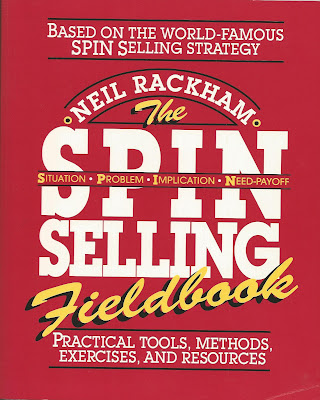SPIN Selling techniques questions are convenient, and the very reason behind their usefulness can be traced back to thousands of sales reps from various companies and industries which were being studied before the techniques were brought to life. Before we proceed to the meat of this article, here's a brief but necessary introduction to this subject.
1. (Brief) Introduction Of SPIN Selling
Neil Rackham is the brain behind Spin selling. What's unique about him is, he was first a psychologist before he turned to the field of selling. What we often heard or see is sales consultants who use psychological techniques to sell.
When Neil set out to study thousands of salespeople, not ordinary, but successful salespeople, he set out to distinguish factors that make the difference. He sets out to answer questions like 'Why this rep sell more than others? How he or she do it? What they do differently? Can it be taught or learned? Can it be duplicated?'
1. (Brief) Introduction Of SPIN Selling
 |
| From this angle, this man looks like Neil Rackham, but he's not Neil. |
When Neil set out to study thousands of salespeople, not ordinary, but successful salespeople, he set out to distinguish factors that make the difference. He sets out to answer questions like 'Why this rep sell more than others? How he or she do it? What they do differently? Can it be taught or learned? Can it be duplicated?'
In our personal opinion, the last question is the ULTIMATE question. If these special skills worth studying, they're worth replicating.
Compared to other non-researched or psychologically driven sales strategies like selling using NLP, what set Spin Selling away from its competitors is the range of applications. Now, we do believe you can read all the details about Neil's research and what he did to come to this selling model, but in this intro, we want to give you the angle which we believe you won't find elsewhere, other than here.
It's our angle on how we see SPIN Selling techniques.
1.1 SPIN is an acronym. It stands for:
- S - situational
- P - problem
- I - implication
- N - need-satisfaction
According to Neil, the letter N was chosen to complement the whole acronym. But it conveys the idea, nonetheless, and that's the brief intro to SPIN Selling - our version, of course.
2. Is SPIN just about asking questions?
 |
| The SPIN Selling Fieldbook. |
Maybe we were just a bit more interested compared to others with this subject ... maybe.
Because of our interest, on our own initiative, we went to buy SPIN selling and SPIN selling field book because we need to know the whole story. Blame it on the curiosity, but we need to know, and we glad we did.
We remember during one particular practice session, when participants were videotaped while practicing, the comment we got from the head trainer was, "I can see this one really SPIN..." We took it as a compliment because from our observation on others, they're still not comfortable with the techniques.
We were really comfortable with it. Could this happen because we are introvert?
The way we look at it, Spin is not about asking questions ONLY. The whole idea is to create enough value into your proposition, and if prospects find it appealing, they'll buy into it.
The purpose is to uncover the value inside-out - from inside the prospects and onto our proposition. The way we discover it is through questioning. But not just any question. The SPIN acronym reminds you of the type of question in the buying cycle.
Lets not overwhelmed ourselves with more ideas and concepts, shall we? We'd love you to have something you can act upon after reading this post.
3. Why ask the question?
The way we see it, questions are engaging. Questions are useful. And depending on your stage of the buying cycle, each question in the SPIN Selling technique is going to move you to another phase of the cycle. The idea is to move prospects one stage to another. It's called "advancing."
4. Why ask SPIN questions?
Spin questions have built-in, intrinsic values. Prospects don't just answer them. They build values on them. Each item will tend to move prospects along with every given answer because they will see their situation from a different point of views. And it's essential to do so because, if prospects don't know the value of changing, you'll find it hard to present your solution or what have you.
That's the whole idea.
According to Neil, successful salespeople ALWAYS present their solution later in the interaction. Newbies were eager to offer their product in the first few seconds of interaction.
5. What we want to leave you with?
It's too much to write about SPIN selling in just one article. But we still want to leave you with something that you can use, using the "hardware" we talked about previously. Here are 2 take-home messages that you can digest and apply to your current sales questions techniques.
- Build enough value into your proposition before you present them. Hold yourself back from sharing everything in the first few seconds.
- Notice the value of every question you ask. No, every question is created equal - value-wise, at least. Find the ones that move you along the buying cycle. Aim for business and not only sales.

No comments:
Post a Comment